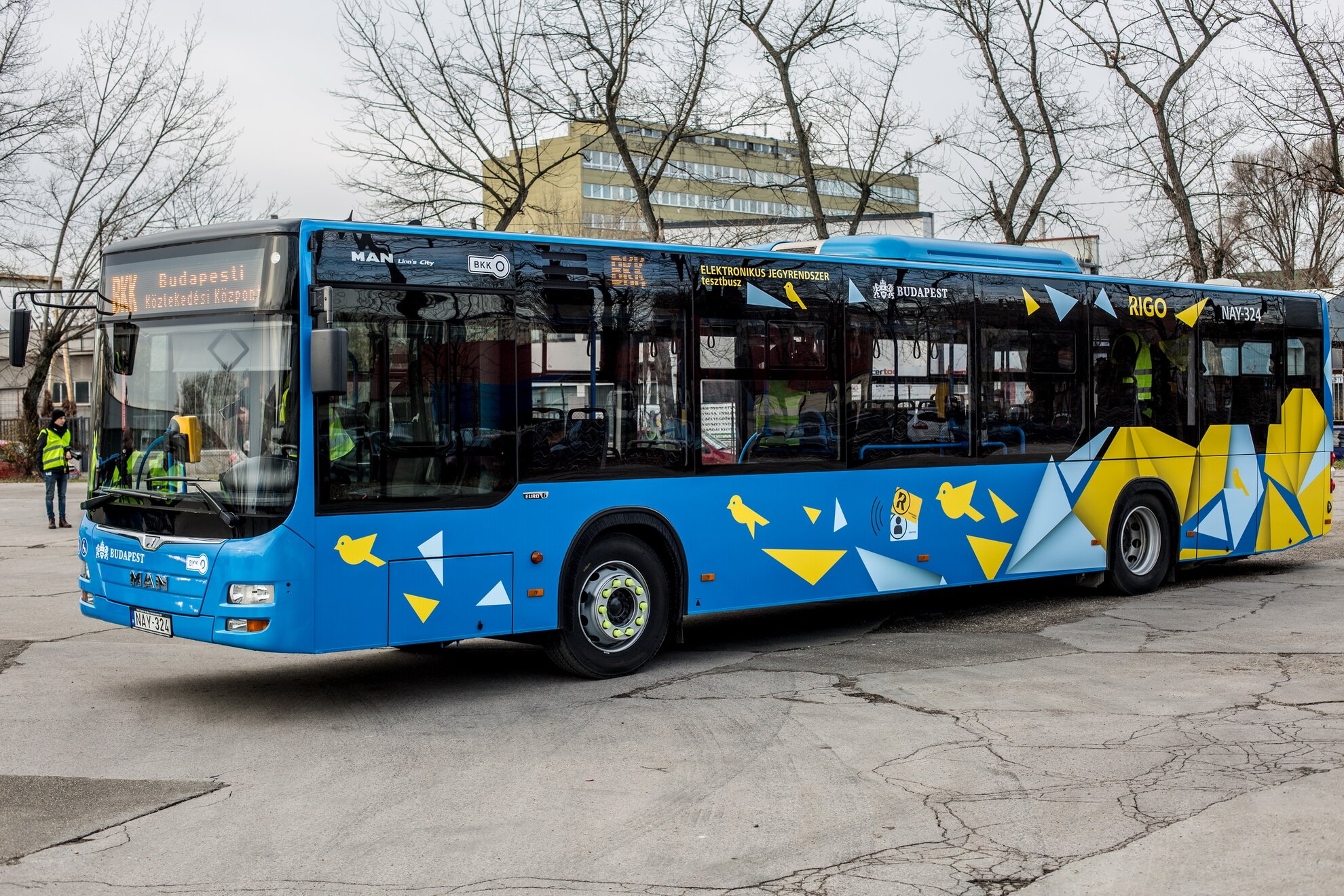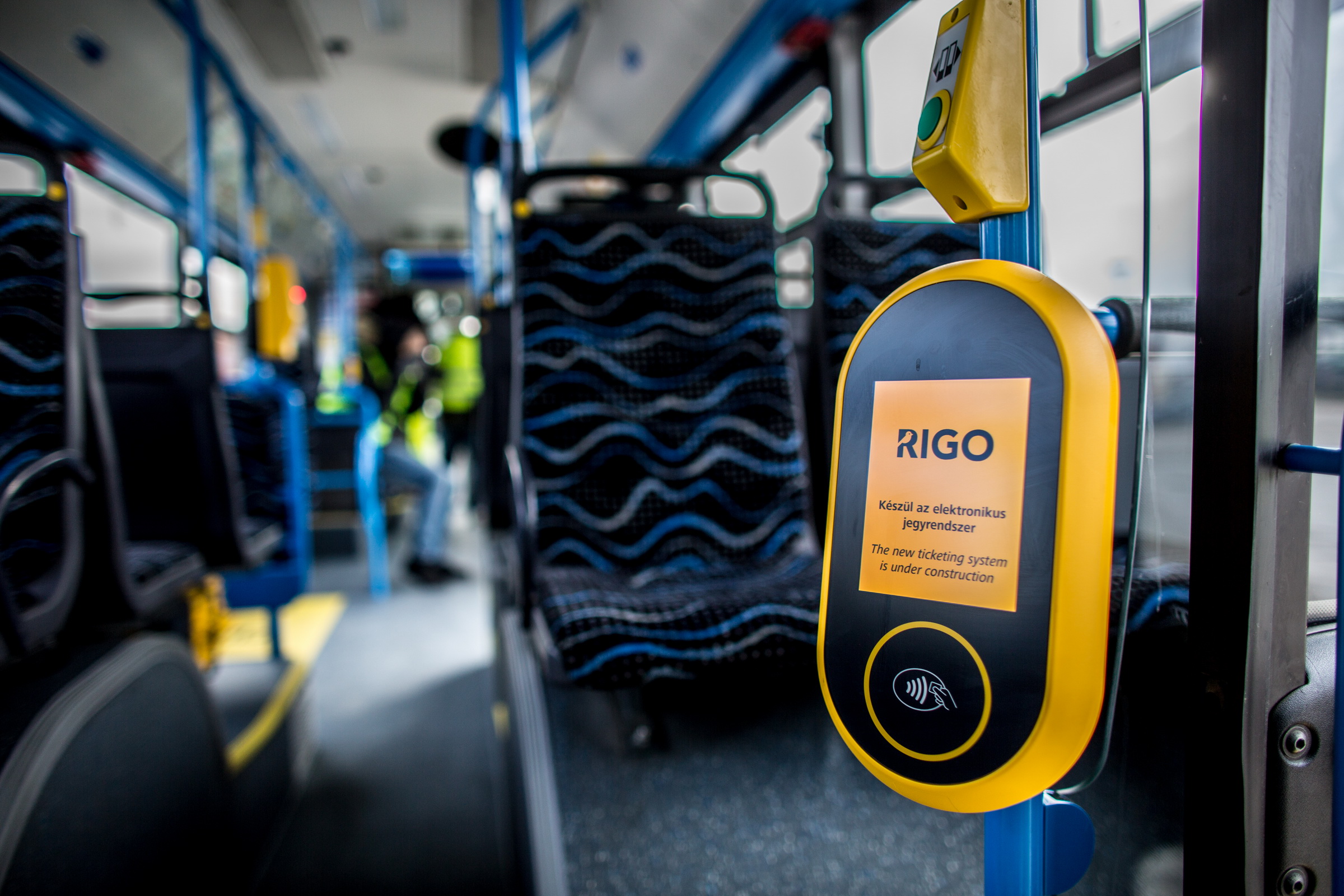Budapest’s peculiar punching machines on public vehicles will soon be a thing of the past. The vintage appliances are now gradually being replaced by more modern technology suitable for scanning travel cards. As part of launching a new electronic ticket system, RIGO, into the city’s public transport, the first digital devices to support this infrastructure are now being installed on board buses serving a specific route in south Buda. The new platform is currently running in an initial test phase, developers assessing its performance and making any necessary improvements on the software before passengers can start using the system. Until then, the RIGO card will not be generally available.
Electronic ticketing is an indispensable part of modern public transport in most Western cities. Soon it will also be available in the Hungarian capital, which is now phasing out traditional paper tickets and passes. Budapest’s public-transportation authorities have already introduced ten electronic access gates at Deák Square’s central metro station, its test phase launched on August 31st last year. In September, more electronic gates were installed at the Közvágóhíd terminus of the HÉV train line.

Before central electronic accounting network RIGO is introduced along all of Budapest’s public-transport lines, BKK has recently installed the first devices on a bus route serving south Buda. Using software developed by German firm Scheidt & Bachmann, the new system will replace the current tickets and passes by a photo ID smart card, issued after registration on the new RIGO platform.

In addition to being a much more modern way of ticketing, the system will feature a number of additional benefits, such as daily fare capping and calculation of the lowest possible tariff. To ensure that the service will run smoothly once available for passengers, developers have started running tests on the software and its settings. Buses where the electronic platform is available are designated with stickers featuring the RIGO logo of a yellow bird.

After a successful test phase, this computerized infrastructure will be expanded along more of Budapest’s public-transport lines, and a total of 2,500 vehicles including buses, trolleybuses and trams will be connected to a centralized accounting system, supported by more than 10,000 devices for scanning travel cards. An additional 530 black-and-yellow machines will be set up at metro and HÉV train stations that cannot be closed and controlled by access gates. Building a complete network of this new infrastructure will start this year.


After all the RIGO gates and devices are fitted, the current paper-based passes and the new e-tickets will be simultaneously in use for a while to allow for gradual transition.




